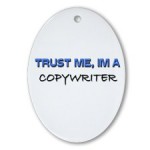 Learning how to write effective copy not only helped me to build a successful law practice, it helped me to sell millions of dollars of my signature marketing course and other products. Copy writing, which as been called “salesmanship in print” is an important skill for every attorney, even those with no intention of writing their own sales materials.
Learning how to write effective copy not only helped me to build a successful law practice, it helped me to sell millions of dollars of my signature marketing course and other products. Copy writing, which as been called “salesmanship in print” is an important skill for every attorney, even those with no intention of writing their own sales materials.
Effective marketing documents can make the different between unbridled success and abject failure. A change of headline or offer can increase the pulling power of a letter or ad or web site twenty-fold–and even more.
The best way to learn copy writing is to study effective marketing documents. When you see something good, something that’s working, perhaps something that made you buy a product or service, copy the sales letter or ad or web page so you can study it. Create a “swipe” file of letters, brochures, ads, web pages, newsletters, and other compelling copy, to study, for ideas and to use as models for creating your own documents.
(Shameless plug alert. . .)Â The Lawyers’ Marketing Toolkit is a swipe file of marketing documents for lawyers. It is a collection of referral letters, reports, ads, newsletters, brochures, and other marketing documents submitted to me for critique by lawyers in my marketing program–along with my (detailed) critiques.
Start your copy writing education by studying the sales letter for The Toolkit. Print the page, copy it, read and re-read it. It works and it could be the first document for your new swipe file.
After many years of collecting marketing documents in file boxes, today, I use Evernote to collect them electronically. It’s free and a great place to start your swipe file.
[mc src=”http://www.youtube.com/watch?v=ObHOvFoRLxk&feature=mfu_in_order&playnext=1&videos=QOSWMn-miTw” type=”youtube”]The single most valuable skill for attorney marketing[/mc]







